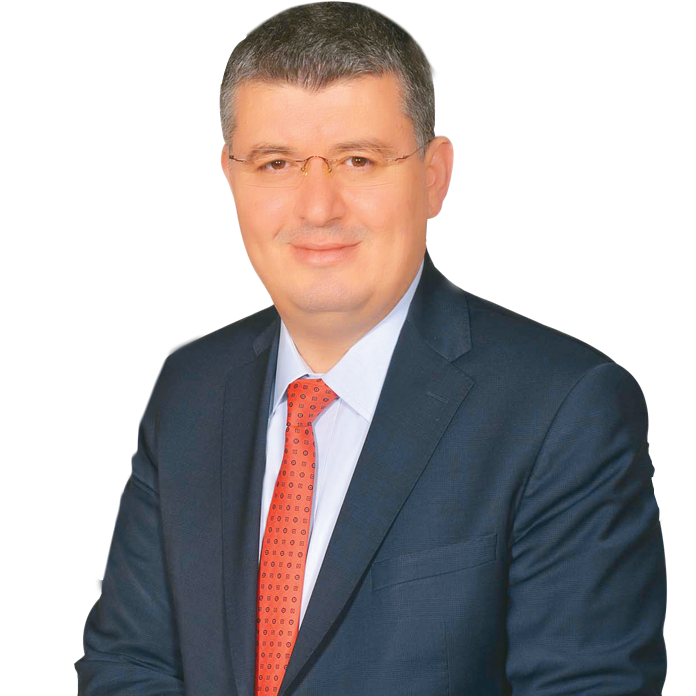We’re leaving behind a tumultuous week with Libya topping the agenda.
Early in the week, Russian Foreign and Defense ministers were scheduled to visit Turkey after an agreement was reached between President Recep Tayyip Erdoğan and his Russian counterpart Vladimir Putin.
However, the visit did not take place when:
1- The Russian deputy minister who came to Ankara a day before proposed a ceasefire backing the 6 June Cairo Declaration in support of Khalifa Haftar,
2- Ankara rejected this proposal.
Naturally, this did not lead to a crisis or cease dialogue, but it was quite interesting in terms of being the latest example demonstrating the extent to which Turkey and Russia differ in their approaches and resistance points concerning Libya.
Later, on Wednesday, it was revealed that a top-level delegation from Turkey made a day visit to Tripoli. We say “revealed,” because the visit had not been announced earlier.
First, the Arab world became aware of such a visit upon the announcement made by news outlets in Libya. Then, the Turkish public found out upon the circulation of the images taken as the Turkish delegation was entering the prime ministry premises in Tripoli. The delegation included top-level figures such as Foreign Minister Mevlüt Çavuşoğlu, Treasury and Finance Minister Berat Albayrak, National Intelligence Organization (MİT) Chief Hakan Fidan, and Presidential Spokesperson İbrahim Kalın.
When we asked the relevant groups, whose evaluations we requested regarding the nature of this surprise visit, we received the following statement:
“It was important to go altogether. We want that place to completely normalize, and the stability there to be freed from the shadow of civil war. As a country, we are doing whatever is necessary to achieve this.”
“IT IS HIGHLY LIKELY THAT OPERATIONS WILL CONTINUE”
The Libyan people finally achieving the climate of peace and tranquility that they deserve following years of ambiguity that were open to uncertainty and instability, as they move towards the reconstruction of destroyed regions, the revival of the economy, and and long term stability.
In order to understand what the above statement means, we can form sentences like this as well.
Also, Turkey taking on a role in this whole process as a powerful – perhaps the most powerful – actor.
News that broke out yesterday stated that the Fayez al-Sarraj administration requested that the Turkish delegation help put an end to the up to 8-10-hour daily power cuts in Libya. It is clear that an atmosphere of cooperation is going to be instituted with the elimination of the power cuts, and thereafter deepened gradually.
The noisy anti-Turkey statements coming from France, Greece, and certain Arab capitals must be the result of their failure to process this situation.
ANKARA INSISTS ON EXCLUDING HAFTAR FROM THE EQUATION
So, what will happen next?
The forces affiliated with the Turkey-backed Government of National Accord (GNA), which is recognized by the UN as Libya’s legitimate administration, had pushed putschist Haftar’s forces out of the Tripoli region to Sirte. Upon this, the Russians made a threat by deploying in Libya the warcraft they lifted from the Hmeimim Airbase in Syria.
This may have slowed down the rapid progress made by GNA forces, however, the Libyan administration’s interior minister and chief of General Staff announced that operations will continue, and Sirte and Jufra will be taken, showing their determination concerning this matter.
Yet, what is Ankara’s position on this matter?
To summarize, the impression I got after speaking to informed sources, I can say: Ankara has no intention of curbing its Libyan ally’s desire to advance against Haftar or stopping a likely operation decision.
Some of the groups we have been following are saying:
“We know that they are proposing a ceasefire to win time in order to recover the areas they lost. Therefore, we have no expectations with respect to the operation ending. We are of the opinion that it should continue until Haftar is left outside of the equation.”
Despite the numerous ceasefire deals made to date, Putschist Haftar and the powers behind him never abided to any of these. Hence, an agreement made at this point cannot be guaranteed.
According to Ankara, Haftar is a spoiled and unreliable man, who does not hesitate to resort to a ceasefire whenever he gets stuck and spring into action again after winning some time.
Hence, it is thought that Ankara is resolute from now on to ignore someone like this, and make no room for him in any of the negotiations to be made concerning Libya’s future.




















